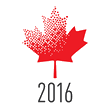Dictionary, Census of Population, 2016
Mother tongue
Definition
'Mother tongue' refers to the first language learned at home in childhood and still understood by the person at the time the data was collected. If the person no longer understands the first language learned, the mother tongue is the second language learned. For a person who learned two languages at the same time in early childhood, the mother tongue is the language this person spoke most often at home before starting school. The person has two mother tongues only if the two languages were used equally often and are still understood by the person. For a child who has not yet learned to speak, the mother tongue is the language spoken most often to this child at home. The child has two mother tongues only if both languages are spoken equally often so that the child learns both languages at the same time.
Statistical unit(s)
Classification(s)
Language(s) of Person 2016
Collapsed - Language(s) of Person 2016
Language(s) of Person 2016 – Aboriginal Languages Variant
Language(s) of Person 2016 – Inuit Languages Variant
Language(s) of Person 2016, Total responses
Reported in
2016, 2011, 2006, 2001, 1996, 1991, 1986 and 1981 (100% data). For availability prior to 1981, please refer to Appendix 2.0.
Reported for
Total population
Question number(s)
Direct variable: Question 9
Responses
See Figures 3.3, 3.3A, 3.3B, 3.3C and 3.3D.
Remarks
For more information on language variables, including information on their classifications, the questions from which they are derived, data quality and their comparability with other sources of data, please refer to the Languages Reference Guide, Census of Population, 2016.
- Date modified:
